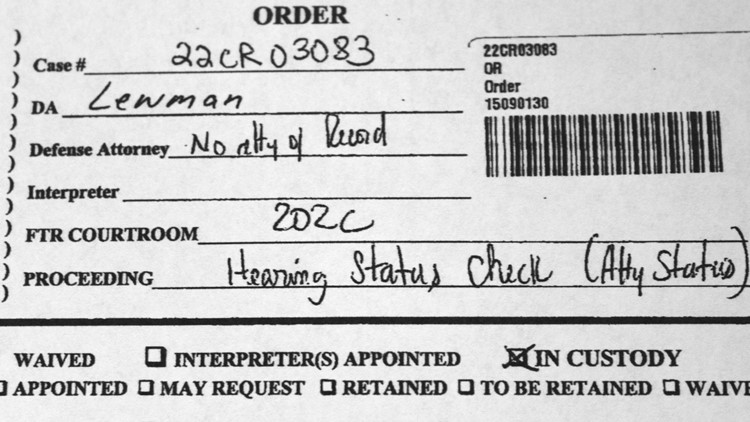SALEM, Ore. — Oregon's chief justice denied Wednesday that a personality conflict led her to fire all members of a commission that governs the Office of Public Defense Services and appoints its executive director.
Critics for years have said Oregon's public defense system is in crisis with far too few attorneys to represent people accused of crimes.
Chief Justice Martha Walters said last week the executive director, Stephen Singer, had verbally attacked her during one encounter and blamed him for failing to lead his agency out of a crisis.
The Public Defense Services Commission last week decided not to fire Singer. Walters then took the unprecedented step on Monday of dismissing all nine voting members of the commission. She invited those who wanted to remain to reapply for their positions and then reinstated five of them while appointing four new ones.
Former commission member Thomas Christ said Walters wants Singer removed and that he believes she “decided to just fill the commission with people who’ll vote the way she wants on that issue,” the Oregonian/OregonLive reported. Christ was among those fired on Monday and was not reappointed.
At Wednesday's meeting of the new commission, chairman Per Ramfjord said Singer displays “intemperate behavior” and indicated he might soon be shown the door, with potential interim directors already being considered. Another meeting on Singer was scheduled for Thursday, at which point he would be given an opportunity to speak.
Several commission members spoke out against Singer, who was not present.
“I am gravely concerned that if we do not make a move to address his employment that it will be at the agency’s peril and more importantly, the many people who are currently sitting in custody without lawyers," said commission member Paul Solomon.
“One of the things that I’ve been really challenged with is Director Singer's inability to provide factual information to this commission,” Solomon added. "We still have no idea how many people are actually sitting in custody at this moment without counsel statewide.”
Others in the public defense community have defended Singer as a leader who is taking on reforming a broken system, while acknowledging he can be abrasive.
A report by the American Bar Association released in January found that Oregon has only 31% of the public defenders it needs. Hundreds of defendants who can’t afford an attorney have been unable to obtain public defenders to represent them.
Walters is an ex-officio permanent, non-voting member of the commission. At Wednesday's meeting, Walters said: "We need to advance the next phase of our work to create the systemic changes and immediate support for those serving and those in need of public defense services in Oregon.”
“I know that emotions are still running high for some," Walters said. "And there have been accusations and suggestions that personality conflicts were what drove my decision. That’s counterproductive and needs to stop.”
Oregon’s public defender system is the only one in the nation that relies entirely on contractors: Large nonprofit defense firms, smaller cooperating groups of private defense attorneys that contract for cases and independent attorneys who can take cases at will.
But some firms and private attorneys are periodically refusing to take new cases because of the workload. Poor pay rates and late payments from the state are also a disincentive.



